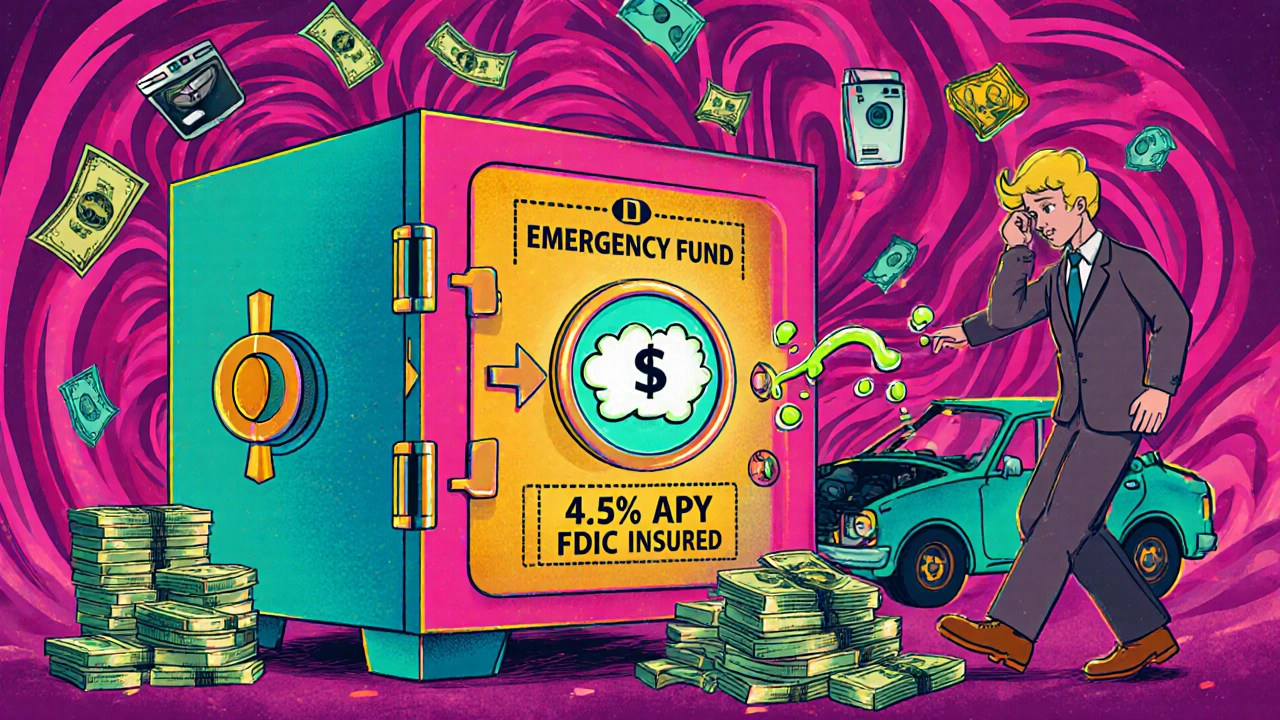CD: What It Is, How It Works, and Where It Fits in Your Portfolio
When you hear CD, a certificate of deposit is a savings product that locks your money for a set time in exchange for a fixed interest rate. Also known as time deposit, it’s one of the safest ways to earn more than a regular savings account without touching the stock market. Unlike a high-yield savings account where you can pull money anytime, a CD asks you to leave your cash alone for months or years. In return, banks pay you a better rate—sometimes over 5%—because they know they can use your money for loans or investments during that time.
CDs are part of the fixed income, a category of investments that pay predictable returns, like bonds or treasury securities. They’re not stocks, not ETFs, and not crypto. They’re the quiet, steady player in your portfolio—perfect for short-term goals like a down payment, emergency fund buildup, or money you don’t want to risk. If you’ve ever wondered why people still use CDs when interest rates keep changing, it’s because they lock in what you earn. Right now, with rates near multi-year highs, a 12-month CD might pay more than most savings apps. And unlike those apps, your money in a CD is federally insured up to $250,000.
But not all CDs are the same. There are high-yield savings, online savings accounts that offer competitive interest without locking your money, which can be better if you need flexibility. Then there are jumbo CDs, bump-up CDs, and no-penalty CDs—each with trade-offs. A jumbo CD needs $100,000 or more but pays more. A bump-up CD lets you raise your rate once if market rates climb. A no-penalty CD lets you withdraw early without fees—but usually at a lower rate. The key is matching the CD type to your goal. Are you saving for a car in 18 months? A 1-year CD might be perfect. Building a long-term safety net? Maybe ladder several CDs across different terms.
People often skip CDs because they think they’re outdated. But in 2025, with inflation still a concern and stock markets unpredictable, they’re making a comeback. Banks are competing for deposits, and that means better deals. You don’t need to be rich to open one—many online banks let you start with $500 or less. And if you’re unsure whether to invest or pay off debt first, a CD can be the middle ground: safer than stocks, better than a checking account, and still earning real returns.
Below, you’ll find real comparisons, practical tips, and clear breakdowns of how CDs stack up against other options. Whether you’re new to saving or just trying to make your cash work harder, these posts give you the facts—no hype, no jargon, just what matters.
